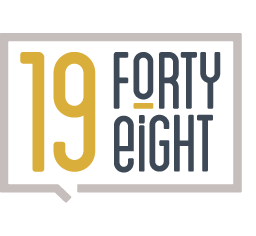When we talk about inclusion and inclusive leadership at work, we often focus on what people say. Perhaps the words they choose or the phrases they avoid. But real inclusion is often revealed in something less visible — the way things are said. Our tone, pace and presence can help create safety or subtly close people out. But most of the time, we don’t notice how our voice shapes the space around us.
Actors, like me, learn early that tone conveys more than words. A single phrase delivered with warmth can build trust, while the same phrase, delivered tensely, can create distance.
Awareness allows an actor to take responsibility for how their voice lands, and in the workplace, this awareness is just as important. Inclusion is not only about what we say but how we say it. Practising this is central to inclusive leadership, which requires attentiveness to others’ experiences.
The micro-signals we send
Bias often doesn’t sound like prejudice. It can sound like a colleague who interrupts certain voices or a manager whose tone sharpens with junior staff. It can sound like someone raising their voice in a meeting while another’s contribution fades. These moments are rarely intentional, but they tell people who holds the floor and who doesn’t.
We call these micro-signals. They are subtle and easy to miss, especially by the person sending them.
Using forum theatre for experiential learning
This is where forum theatre comes in. In a Forum Theatre session, we stage a real workplace scenario with trained actors. The scene plays out as it might in the office, with all the familiar tension and tone. Participants watch closely, noticing the subtle ways bias and power show up in conversation.
Participants do not step into the roles themselves. Instead, they act as directors, guiding the actors on how to adjust delivery. They might suggest softening a defensive tone, pausing to give space to another character, or altering pace to allow someone else to contribute. The actors respond, replaying the scene according to the participants’ guidance.
Forum theatre is an experiential learning tool that makes this process immediate and tangible. Participants can see the effect of small changes without putting themselves on stage, which can often be a barrier. They hear, see, and feel the impact in a safe environment. This transforms awareness into understanding, and understanding into practical insight that can inform inclusive leadership in real workplace conversations.
What actors can teach us
Actors are trained to listen in ways most of us rarely do. They notice energy, shifts in tone, silence, and what isn’t being said. This type of listening creates presence. It keeps them connected to the scene and the audience.
Inclusion requires the same skill. When we listen fully, we notice who is hesitant and who is unheard, and we can then use our presence to create connection. In the workplace, these adjustments might be subtle — a pause to let someone speak or a softening of tone — and over time, these small choices shape a culture of inclusion and psychological safety. Experiential learning, like forum theatre, helps embed these behaviours because people practise noticing and adjusting in real time.
Tone as a Tool for Inclusive Leadership
Tone can either reinforce hierarchy or balance it. A calm, measured voice can make feedback feel fair, while a defensive tone can undo it instantly. The difference lies in awareness and intentionality.
One exercise we use in forum theatre involves replaying a scenario without analysing the words. Participants listen only to tone and delivery. Who dominates the space? Who hesitates? Who is invited in? The impact is immediate. People notice bias and empathy in equal measure. They hear power shifting between voices and realise the effect of their own sound. It is so powerful.
From awareness to action
Awareness is just the start, so after a meeting, ask yourself: who did I speak over? Whose ideas did I acknowledge? How did my tone shift between people? Did I create space for others to contribute? These questions are simple but powerful. Practising this reflection, as we do in Forum Theatre, gradually builds instinctive awareness.
Actors call this rehearsal, and it works the same way for inclusion. The more you practise adjusting tone and presence, the more natural it becomes. Experiential learning of this kind allows leaders to internalise the behaviours needed for inclusive leadership.
The sound of belonging
People recognise inclusion instantly. It is not in slogans or policy documents, it is in the tone of a meeting and the warmth of a greeting. These sounds communicate safety and belonging.
So when you think about inclusion, don’t just look at who’s in the room. Listen to how the room sounds. Listen to your own voice. The real measure of inclusion lives in sound, in tone, and in presence. It’s something you can practise every day, in every conversation.
By Simon Coleman | 1948 Co-Founder | Actor | L&D Specialist
If you’d like to find out how 1948 can support your business, contact [email protected] or visit our website here.


